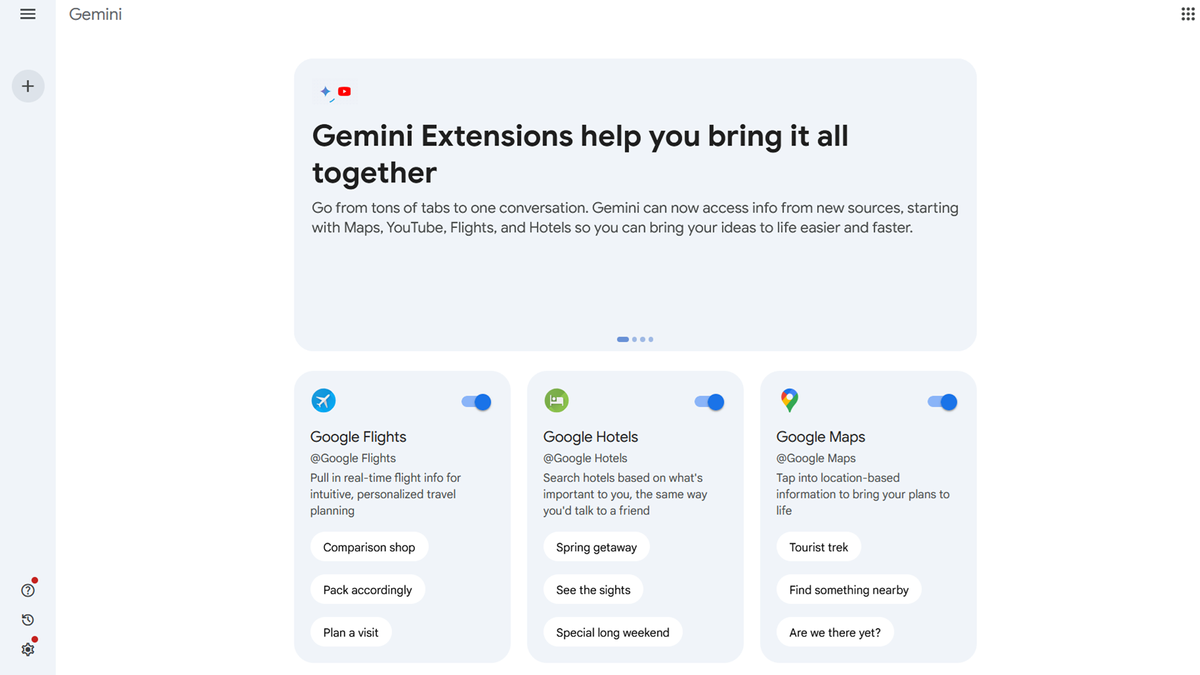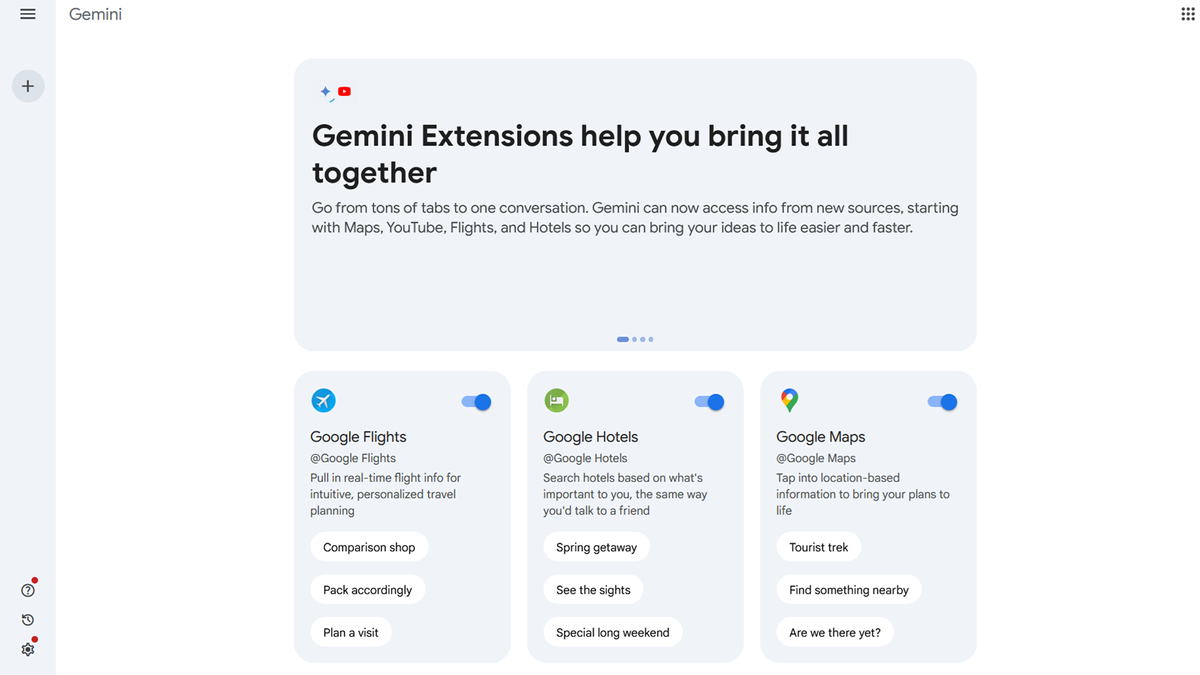
Google has made it clear it wants to make its Gemini artificial intelligence assistant as much a part of your life as possible. Unfinished code newly discovered by Android Authority shows how upcoming Gemini extensions will serve that goal. The extensions integrate Gemini with various Google services, and there are at least six new extensions on the horizon.
Gemini’s extensions are similar to extensions used by Chrome and other web browsers in that they are designed to improve and streamline tasks while engaged with the platform. Gemini already offers extensions linking a half dozen first-party services, including Google Flights, Hotels, Maps, Workspace, YouTube, and YouTube Music. These integrations enable Gemini to access real-time personal data and incorporate it into the user’s requests. That might mean getting info on an upcoming trip from Google Flights or working out how far a store is from your friend’s home.
The anticipated new extensions further the array of utilities available through Gemini. Among the most noteworthy unannounced extensions is Google Home. Gemini essentially replaces Google Assistant by giving the AI direct control over smart home devices without having to ask Google Assistant first. That’s a subtle but important shortening of the time between a request to turn on the lights and the switch responding. How far the extension goes isn’t clear, according to the code, but it’s a definite step toward Gemini becoming the default voice assistant over Google Assistant.
The same goes for the Phone app extension seen in the code. Once again, Google Assistant’s role as the middleman is removed. Gemini would be able to manage phone call commands directly. Smartphones will also have access to the new Utilities extension, letting Gemini adjust phone settings and mobile apps. So, for instance, instead of using specific and sometimes limited Google Assistant commands, you could use far more casual language to get Gemini to take photos, adjust volume, and open apps.
Extended Extension Release
The other three extensions highlighted in the trawl through the code were announced at Google I/O this year and are a little more niche. That said, Google Calendar, Keep, and Tasks are all widely used and popular apps that could benefit from Gemini’s AI model. These extensions will likely integrate with Gemini to manage schedules, notes, and to-do lists. Google hasn’t set a specific rollout date, though it could be part of a burst of new features themed around productivity or an individual release schedule.
All of the current and future Gemini extensions fit with Google’s blitz of Gemini upgrades this year. The hurried schedule reflects not only how quickly Google is embedding Gemini throughout its ecosystem but also how the company clearly feels pressure to match or beat its rivals in the same game. Speculation over how Amazon will enhance Alexa with generative AI models has been rife, and Apple is expected to make its forthcoming Apple Intelligence AI models a core element of Siri. Google wants consumers to view Gemini as the more efficient and versatile option and maybe take a bite out of the robust market share owned by Amazon’s smart home ecosystem and Apple’s mobile devices.
You might also like
Services Marketplace – Listings, Bookings & Reviews
